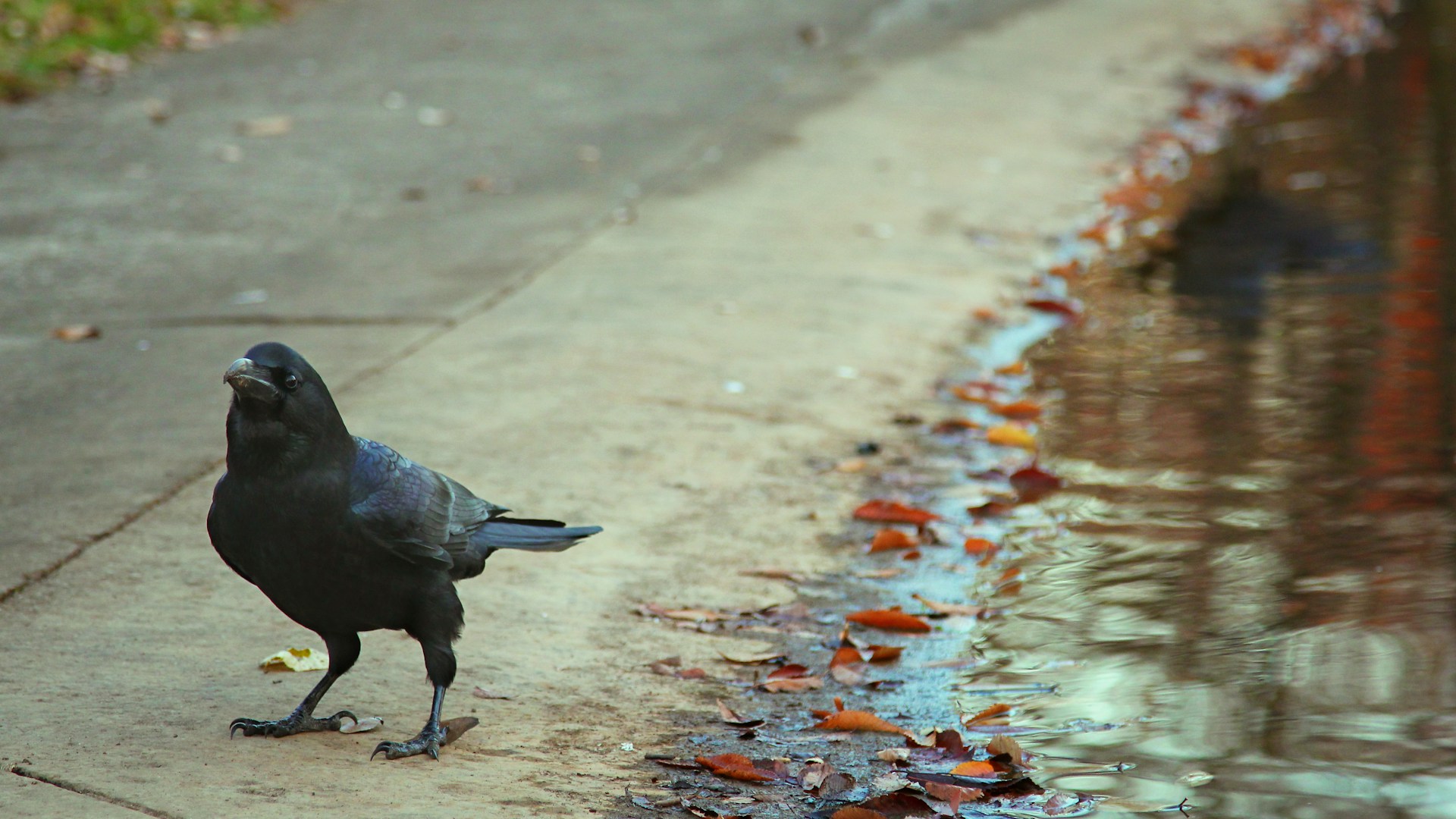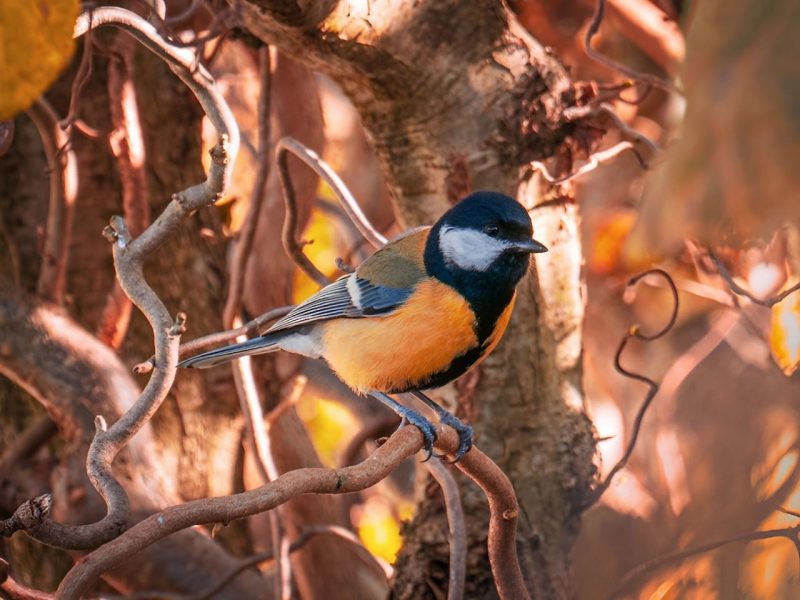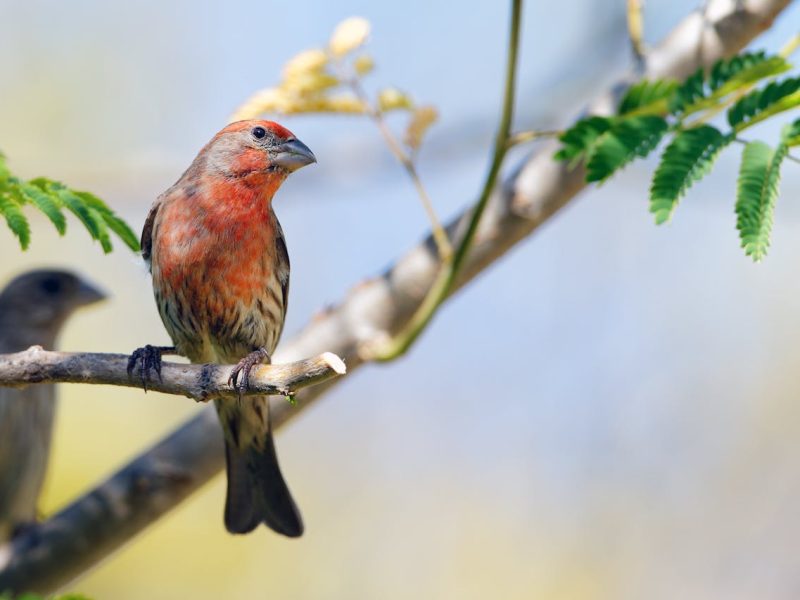Crows are incredibly intelligent birds, and their ability to adapt to different environments is truly remarkable. One question that often arises is whether these feathered friends can quench their thirst for ponds. The answer is a resounding yes, and in this article, we’ll explore the various ways crows can access and drink from ponds, as well as other water sources.
Crows and Their Water Needs
Like all living beings, crows require a consistent supply of water to survive. Their daily water intake can vary depending on factors such as temperature, activity levels, and diet. During hot weather or periods of increased activity, crows may need to drink more water to stay hydrated.
Ponds and other natural water bodies are ideal sources of fresh water for crows. These birds have adapted to exploit various water sources, and their intelligence plays a crucial role in helping them locate and access these vital resources.
Accessing Pond Water
Crows are adept at navigating different types of ponds, from small backyard water features to larger, natural bodies of water. They are not deterred by obstacles such as steep banks or dense vegetation surrounding the pond.
One of the primary ways crows drink from ponds is by dipping their beaks into the water and taking sips. Their long, slender beaks allow them to reach into shallow areas or even drink from the edges of the pond.
In some cases, crows may use natural tools, such as sticks or leaves, to scoop water from the pond and bring it closer to their beaks. This behavior demonstrates their remarkable problem-solving skills and adaptability.
Water Quality Considerations
While ponds provide a readily available water source for crows, these birds are also discerning when it comes to water quality. They have an innate ability to identify and avoid contaminated or stagnant water sources that could pose a health risk.
Crows are often observed drinking from cleaner, flowing water sources, such as streams or rivers, which may indicate their preference for fresher water. However, if a pond is their only available option, they will adapt and drink from it as long as the water appears safe.
Alternative Water Sources
Crows are not solely reliant on ponds for their water needs. These resourceful birds can seek out and exploit a variety of other water sources, both natural and artificial.
During dry spells or periods of water scarcity, crows may turn to alternative sources such as:
- Dew or condensation on leaves and grass.
- Melting snow and ice.
- Puddles and pools formed after rain.
- Bird baths or pet water bowls.
- Leaking pipes or dripping taps.
Their ability to adapt and find water from various sources is a testament to their intelligence and survival instincts.
Providing Water for Crows
If you’re interested in attracting crows to your backyard or urban area, setting up a dedicated bird bath can be an effective way to provide them with a reliable water source. Crows are known to frequent areas where fresh water is readily available.
When setting up a bird bath, consider the following tips:
- Choose a location that is easily accessible for the crows but also provides some cover or nearby perching spots for them to feel secure.
- Maintain cleanliness by regularly changing the water and cleaning the bath.
- Adding rocks or branches to the bath can create perching spots and make it more inviting for crows.
By providing a sustainable water source, you not only support the hydration needs of crows but also contribute to the overall health and well-being of these fascinating birds in your local ecosystem.
Conclusion
Crows are undoubtedly capable of accessing and drinking water from ponds, as well as various other natural and artificial water sources. Their intelligence, adaptability, and problem-solving skills allow them to navigate different environments and exploit available resources.
While ponds may not be their sole source of hydration, they remain an important and accessible option for these clever birds. By understanding their water needs and preferences, we can better appreciate the remarkable abilities of crows and take steps to support their presence in our communities.



